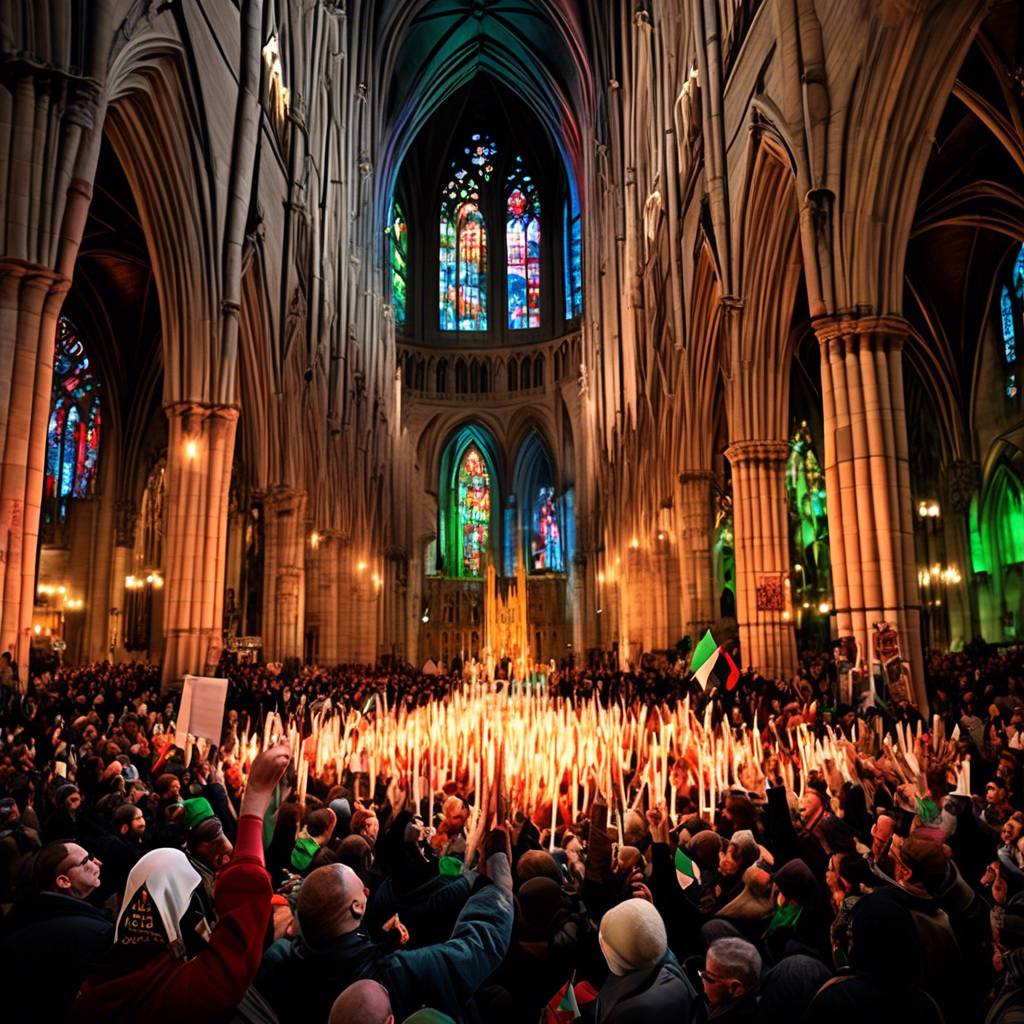Pro-Palestinian protesters gathered in Times Square for “Palestinian Land Day” before taking their protest to the Easter Vigil service at St. Patrick’s Cathedral in New York City. During the service, chants of “Free, free Palestine” disrupted the mass, leading to the protesters being quickly removed from the church. Cardinal Timothy Dolan, archbishop of New York, led the service as many in attendance did not acknowledge the outburst.
Across the world, millions gathered to protest the Israel-Hamas war in Gaza. The United States Conference of Catholic Bishops (USCCB) called for prayers for peace in the Middle East and an end to the conflict before the start of Holy Week. The bishops emphasized the need for hope and peace during this time, as thousands of innocent people have died in the conflict and many more have been displaced and are suffering. The USCCB has consistently advocated for peace, prayer, fasting, and the release of hostages captured by Hamas, while also condemning the deaths of civilians.
In response to the disruption at St. Patrick’s Cathedral, former President Donald Trump demanded an apology from President Biden for the “blasphemous” celebration of Trans Visibility on Easter Sunday, calling it “appalling.” The incident highlights the intersection of religious observance and political protest, with tensions running high over international conflicts. The clash between protesters advocating for Palestinian rights and churchgoers participating in Easter services demonstrates the complexity of addressing these issues in the public sphere.
The confrontation at the cathedral underscores the broader challenge of reconciling diverse perspectives on contentious global issues like the Israel-Hamas conflict. As demonstrators voice their support for the Palestinian cause, they face opposition and criticism from those who prioritize religious observance and peace. The clash highlights the need for dialogue and understanding between groups with differing beliefs and priorities, as well as the importance of finding peaceful resolutions to conflicts that have caused immense suffering and loss of life.
The Easter Sunday protests and disruptions at St. Patrick’s Cathedral draw attention to the ongoing need for peace and dialogue in areas of conflict around the world, particularly in the Middle East. The USCCB’s call for prayers for peace and an end to the violence reflects a broader commitment to advocating for nonviolent solutions and addressing the root causes of conflict. As the Catholic Church enters Holy Week, the message of hope and reconciliation resonates with the urgent need for healing and resolution in areas of ongoing conflict and suffering.
Overall, the events at St. Patrick’s Cathedral and the wider context of global protests highlight the complex interplay between religious observance, political activism, and calls for peace in the face of conflict. As diverse voices and perspectives seek to address pressing issues and promote justice and reconciliation, the challenge lies in finding common ground and understanding amidst deeply held beliefs and values. The intersection of religious traditions, political tensions, and humanitarian concerns underscores the ongoing importance of dialogue, empathy, and a commitment to nonviolent solutions in addressing the root causes of conflict and building a more just and peaceful world.









